How to Ask for Letters of Recommendation
Letters of Recommendation
When it’s time to compile your college application package, there will be a number of written components to include. What comes to mind first for most students is the personal statement that they have to write. But it’s important to not overlook what others will write about you. Letters of recommendation play what can be a pivotal role in admissions decision-making.
Live in a Way That’s Worth Writing About
My best advice to students is to “live your life in a way that’s worth writing about.” One of the most commonly missed opportunities in the admissions process is submitting positive yet general (aka boring) letters of recommendation. The actions you can take to secure a compelling letter of rec start earlier than you might think. The Common App provides a useful guide for letters of recommendation, and I suggest you check it out. For even more insight, read the below advice to help you ensure the best possible letters of recommendation are included in your application.
Who Writes Letters of Recommendation?
Teachers:
You will usually need to ask two teachers. Some colleges require only one letter of recommendation from a classroom teacher, some require two and allow for more, and others allow for teacher recs but don’t require them at all. So to be fully prepared for nearly all college requirements, securing two teacher recs is best. Ideally, these teachers will come from 11th grade because that is the most recent full year of instruction before you apply to college. For most students, it makes sense to ask one teacher from a core STEM-related subject and one teacher from a core humanities class. There are, of course, always exceptions. Many students applying to college this fall will request letters from 10th grade teachers because last year’s courses were completely online and it was difficult to establish relationships with teachers through Zoom and asynchronous learning. For some, it makes sense to ask a 12th grade teacher, especially if you’ve had that teacher in an earlier year. A student who is applying to a specialized academic program, say engineering, might ask their math teacher and physics teacher, foregoing a humanities letter, because they want to emphasize skills in those related courses. There are many considerations when picking the right teachers to ask.
Counselor:
No matter how big or small your school is or how well you know your college counselor, the counselor almost always writes a letter of recommendation. Some colleges don’t consider letters of recommendation at all, but if they do and it’s only one they want, it’s usually the counselor’s they request. If you are at a high school with counselors who have bandwidth and small caseloads, then it’s likely easier to develop a relationship with them, which can result in a beautifully vivid letter. But if you’re at a large public high school, whose counselors may be responsible for 500 students each, you’ll need to take a more proactive approach to let your counselor know who you are. Often, counselors will assign questionnaires or surveys to give you a chance to inform them of what is important about your background and what your current goals are. If that’s the case for you, take that step seriously, but also try to take advantage of any facetime you can get with your counselor. The counselor’s job is to provide context for how you fit within your graduating class and within your high school, and that can be difficult to ascertain let alone write about if the counselor can’t pick you out of a crowd.
“Other”:
Many colleges will allow for an additional letter of recommendation from a perspective outside the classroom. Candidates for this type of letter can include an arts teacher (performing or visual), clergy, coach, college access counselor, employer or supervisor, a family member, or even a peer. The idea here is to find someone who can provide a perspective that isn’t already represented in your application somewhere. For example, depending on your situation, it might not make a ton of sense for you to ask your soccer coach to write a letter of rec if your essay is already about soccer. It may make more sense to avoid needless redundancy and ask a different person. However, in some cases, the soccer coach’s letter would be helpful because having an adult perspective come through in a letter of recommendation to corroborate your own can be a smart move. Think carefully about potential letter of rec writers and rolodex through the people who have known you and supported you through your high school years.
When to Ask for Letters of Recommendation
I recommend to my students that they give their teachers a heads-up around spring break of junior year. Your high school will notify you when it’s time to formally ask your teachers, which could be toward the end of junior year or not until fall of senior year. But getting on a teacher’s radar early can be a wise move. Some teachers are popular and get asked by many students, perhaps so many that they must cap the number of letters they offer to write. Asking early gets you a spot in line before that teacher maxes out. It also allows more time for you to bolster your relationship with your teachers by “living your life in a way that’s worth writing about” for a few months before the school year is out. Your teachers will have time to be on the lookout for noteworthy moments from you. And if the teachers want to use summer to draft their letters, they will have the option to do that.
You usually won’t have to ask your counselor formally because they are well aware that they will write a letter of recommendation, but again, it is a good idea to start building a relationship with your counselor as soon as possible. For the “other” letters or rec, generally sometime in late summer will work well to give people plenty of time to write them. That also gives you an opportunity throughout the summer to build your relationship or start a new one with the people who will have a voice in your application package.
How to Ask for Letters of Recommendation
Here’s what usually happens.
Student: “I was hoping you could write me a letter of recommendation.”
Teacher: “Happy to. When do I need to send it in?”
Student: “Two weeks.”
Teacher: “Oh, OK, yeah, I can probably do that.”
Student: “kthxbye”
The “kthxbye” approach is probably one of the weakest ways to go about requesting letters of rec. With little direction or context, your teacher may find it easier to write general (though positive) comments such as “I wish I had a thousand Sallys in my classroom” or “Jamal has a wonderfully positive attitude in class.” Even though it may seem like there isn’t much you can do to control what happens in a letter of rec, especially one you never get to read, the steps you take leading up to and including the ask are important.
Three Steps for Recommendation Letters
Here are three ways you can ensure you’re getting the best letters of rec:
- Start early in your search for the people you can connect with. Identify classes that interest you or whose subjects come naturally to you (or require extra effort from you). Include the teachers in these classes on your journey by letting them in on who you are. Sure, it’s great if you can get an A+ by just doing what you’re told. But speaking up in class, meeting with the teacher one on one, and just generally being open to getting to know people and having them get to know you can build moments that are the fodder for great letters of rec.
- Choose the right people. The most important criterion for choosing a letter of rec writer isn’t always who they are. It’s how vivid they can write about you. Even though it’s ideal to select a teacher from 11th grade and a core subject, if none of those teachers will be able to say more than your name and your grade in the class, it probably makes more sense to think outside the box. It’s common for a student to say they are going to select a teacher because they have a good grade in the class, but often, the teachers whose class you struggled in can provide good insight into what you do when you run into things that get in your way. Colleges want to know more about how you handle challenges more than what is already apparent on your transcript.
- It’s all in the ask. Instead of merely requesting a letter of recommendation, tell them why you are asking. Explain to them what you hope their letter will do in the context of your application. They will be thankful to hear it. People want to help, but letter of rec writing is a bit of an annoyance for some. Giving your recommender direction can be quite useful, and it’s not uncommon that letter writers, especially teachers, ask you to fill out a form to help guide them.
With the test-optional movement surging and transcripts becoming less reliable due to online instruction, subjective components in the application such as letters of recommendation have become only more significant in college admissions. If you have questions about your letter of rec options, let us know so we can give you advice specific to your situation.
Share this article

Follow us
A quick overview of the topics covered in this article.
Latest articles
Reading Time : 3 mins
Reading Time : 1 mins
Reading Time : 5 mins




